Introduction to Morel Mushrooms
Morel mushrooms (Morchella species) are among the most sought-after wild fungi in the world, prized by chefs and food enthusiasts for their unique honeycomb appearance and distinctively rich, nutty flavor. These delicacies emerge in early spring, often after the first rains, making their harvesting a beloved seasonal activity for mushroom hunters.
Beyond their culinary appeal, morel mushrooms offer an impressive array of health benefits. These wild fungi are packed with essential nutrients, vitamins, minerals, and bioactive compounds that can support overall health and well-being. From boosting immune function to providing rare plant-based vitamin D, morels are truly nature's nutritional powerhouse.
In this comprehensive guide, we'll explore the numerous health benefits of morel mushrooms, their nutritional profile, how to incorporate them into your diet, and important safety considerations to keep in mind when enjoying these remarkable fungi.
Nutritional Profile of Morel Mushrooms
Before diving into the specific health benefits, it's important to understand what makes morel mushrooms so nutritionally valuable. Despite being low in calories, morels are surprisingly nutrient-dense.
Macronutrient Composition
Here's a breakdown of the macronutrient content in a 100-gram serving of fresh morel mushrooms:
- Calories: Approximately 31 calories
- Protein: 3.1 grams
- Carbohydrates: 5.1 grams
- Dietary Fiber: 2.8 grams
- Fat: 0.6 grams
This macronutrient profile makes morels an excellent choice for those looking to maintain or lose weight while still consuming nutrient-rich foods. The high fiber and protein content relative to calories helps promote satiety, keeping you feeling fuller for longer.
Vitamin Content
Morel mushrooms contain an impressive array of vitamins, including:
- Vitamin D: One of the few natural food sources of vitamin D, with approximately 206 IU per 100 grams
- B Vitamins: Rich in riboflavin (B2), niacin (B3), and pantothenic acid (B5)
- Vitamin E: Contains tocopherols, which act as antioxidants
The vitamin D content in morels is particularly noteworthy, as this essential nutrient is difficult to obtain from plant-based food sources. Vitamin D plays crucial roles in bone health, immune function, and mood regulation.
Mineral Content
Morels are exceptionally rich in several essential minerals:
- Iron: 100 grams of morels provide approximately 12.2 mg (68% of the daily recommended intake)
- Copper: 100 grams contain about 0.6 mg (69% of the daily recommended intake)
- Manganese: Contains significant amounts that support enzyme function
- Phosphorus: Approximately 194 mg per 100 grams
- Zinc: About 2 mg per 100 grams, important for immune function
- Potassium: Roughly 400 mg per 100 grams, supporting heart health
This mineral density makes morels particularly valuable for those at risk of deficiencies, including vegans, vegetarians, and those with restricted diets.

9 Key Health Benefits of Morel Mushrooms
Now that we understand the nutritional composition of morels, let's explore their specific health benefits.
1. Exceptional Source of Vitamin D
Morel mushrooms contain remarkably high levels of vitamin D compared to most other foods, especially plant-based options. Vitamin D is essential for:
- Calcium absorption and bone health: Helping to prevent conditions like osteoporosis
- Immune system regulation: Supporting the body's natural defense mechanisms
- Mood stabilization: Potentially helping to prevent seasonal affective disorder
- Cancer prevention: Some research suggests vitamin D may help reduce cancer risk
With vitamin D deficiency becoming increasingly common worldwide, incorporating morel mushrooms into your diet can be a natural way to boost your levels of this crucial nutrient.
2. Rich in Antioxidants
Morel mushrooms contain various antioxidant compounds, including:
- Phenolic compounds: Such as gallic acid and tannic acid
- Tocopherols: Forms of vitamin E that protect cells from oxidative damage
- Ascorbic acid: A form of vitamin C that supports immune function
These antioxidants help neutralize free radicals in the body, potentially reducing oxidative stress and lowering the risk of chronic diseases such as heart disease, cancer, and neurodegenerative conditions. By combating oxidative stress, the antioxidants in morels may also support overall cellular health and longevity.
3. Immune System Support
Several compounds in morel mushrooms may help enhance immune function:
- Beta-glucans: Complex polysaccharides that can modulate immune response
- Vitamin D: Crucial for proper immune cell function
- Selenium and zinc: Minerals that support various aspects of immune health
Research suggests that these components may help stimulate the production and activity of immune cells, potentially improving the body's ability to fight off infections and diseases. The immunomodulatory properties of morels make them particularly valuable during cold and flu season or times of increased immune stress.
4. Heart Health Benefits
Morel mushrooms may support cardiovascular health in several ways:
- Potassium content: Helps regulate blood pressure by counteracting the effects of sodium
- Fiber content: May help lower cholesterol levels and improve heart health
- Antioxidant properties: May reduce inflammation and oxidative stress in blood vessels
These combined effects make morels a heart-friendly food that could potentially contribute to reducing the risk of heart disease when incorporated into a balanced diet.
5. Iron for Blood Health
The exceptional iron content in morel mushrooms makes them valuable for preventing iron deficiency anemia, a common nutritional deficiency worldwide. Iron is essential for:
- Hemoglobin production: The protein in red blood cells that carries oxygen
- Energy metabolism: Iron helps convert food to energy
- Cognitive function: Proper brain development and function requires adequate iron
For those following plant-based diets or who have increased iron needs (such as menstruating women or growing children), morels can be a valuable dietary source of this crucial mineral.
6. Blood Sugar Regulation
Morel mushrooms may help support healthy blood sugar levels due to:
- Low glycemic index: Morels contain less than 0.4 grams of glucose per cup
- High fiber content: Fiber slows the absorption of sugar into the bloodstream
- Bioactive compounds: Some components may help improve insulin sensitivity
These properties make morels a potentially beneficial food for those managing diabetes or at risk of developing the condition. The minimal impact on blood sugar, combined with their nutritional benefits, makes them an excellent choice for blood sugar-conscious eating.
7. Liver-Protective Properties
Some research suggests that morel mushrooms may have hepatoprotective (liver-protecting) effects:
- Antioxidant content: May help reduce oxidative stress in liver cells
- Anti-inflammatory properties: Could potentially reduce liver inflammation
- Bioactive compounds: Some components may support liver detoxification processes
While more human studies are needed to confirm these effects, preliminary research indicates that morels could be beneficial for liver health as part of a balanced diet.
8. Weight Management Support
For those looking to maintain a healthy weight, morel mushrooms offer several advantages:
- Low in calories: Only about 31 calories per 100 grams
- High in fiber: Promotes satiety and fullness
- Rich in nutrients: Provides essential vitamins and minerals without excess calories
This combination makes morels an excellent addition to weight-conscious diets, offering substantial nutritional value without contributing significantly to caloric intake.
9. Potential Anti-Cancer Properties
While research in this area is still developing, some studies suggest that compounds in morel mushrooms may have anticancer potential:
- Polysaccharides: May help inhibit tumor growth and spread
- Antioxidant compounds: May protect cells from DNA damage
- Vitamin D: Has been linked to reduced cancer risk in some studies
It's important to note that most of this research is in preliminary stages and often uses concentrated extracts rather than whole mushrooms. However, as part of a balanced diet rich in plant foods, morels may contribute to an overall dietary pattern associated with reduced cancer risk.
How to Include Morel Mushrooms in Your Diet
To reap the health benefits of morel mushrooms, consider these ways to incorporate them into your meals:
Preparing Morel Mushrooms Safely
Before cooking with morels, it's essential to follow these safety guidelines:
- Clean thoroughly: Morels have many crevices where dirt and insects can hide. Soak briefly in cold saltwater, then rinse gently.
- Always cook thoroughly: Never consume morels raw, as they contain small amounts of hydrazine toxins that are destroyed by cooking.
- Use proper identification: If foraging, be absolutely certain of identification, as false morels can be toxic.
- Store properly: Keep fresh morels in paper bags in the refrigerator for up to a week.
Delicious Ways to Cook Morel Mushrooms
Once properly cleaned and prepared, try these cooking methods:
- Simple sauté: Cook in butter or olive oil with garlic and herbs for a delicious side dish
- Pasta enhancement: Add to cream-based pasta sauces for rich, earthy flavor
- Soup addition: Include in mushroom soups for depth of flavor
- Risotto ingredient: Incorporate into risotto for a gourmet meal
- Egg complement: Add to omelets or scrambled eggs for a nutritious breakfast
Availability and Storage
Morel mushrooms are typically available:
- Fresh: During spring months (usually April to June, depending on location)
- Dried: Year-round in specialty stores or online
- Frozen: Sometimes available in specialty stores
Dried morels can be rehydrated before use and maintain most of their nutritional benefits. About one ounce of dried morels is equivalent to seven ounces of fresh ones in terms of nutrient content.

Potential Side Effects and Precautions
While morel mushrooms offer numerous health benefits, there are some important considerations:
Allergic Reactions
Like any food, morels can cause allergic reactions in some individuals. Symptoms may include:
- Skin rashes or hives
- Digestive discomfort
- In severe cases, difficulty breathing
If you experience these symptoms after consuming morels, seek medical attention.
Proper Identification and Toxicity Concerns
False morels (Gyromitra species) can look similar to true morels but contain gyromitrin, a toxin that can cause severe illness or even death. Key differences include:
- True morels have caps attached to the stem at the base
- True morels are completely hollow inside
- False morels often have wavy, brain-like caps rather than honeycomb patterns
Never consume wild mushrooms unless you are 100% confident in their identification or have had them verified by an expert.
Cooking Requirements
Raw morels contain hydrazine compounds that can cause gastrointestinal upset. Always cook morels thoroughly (at least 10-15 minutes) to destroy these compounds.
Special Populations
Certain groups should exercise caution with morel consumption:
- Pregnant or breastfeeding women: Due to limited research on safety
- Young children: Due to potential sensitivity to compounds in mushrooms
- Individuals with compromised immune systems: Due to risk of contaminants in wild-harvested fungi
Alcohol Interactions
Some people may experience adverse reactions when consuming alcohol with morel mushrooms, similar to the "Antabuse effect" seen with some other mushroom species. If you notice unpleasant symptoms when combining morels and alcohol, it's best to avoid this combination.
Conclusion: Making the Most of Morel Mushrooms' Health Benefits
Morel mushrooms truly stand out as a nutritional powerhouse in the plant kingdom. Their impressive profile of vitamins, minerals, antioxidants, and bioactive compounds makes them a valuable addition to any health-conscious diet. From supporting immune function and heart health to providing rare plant-based vitamin D and potential cancer-fighting properties, morels offer benefits that extend far beyond their delicious taste.
When properly identified, cleaned, and cooked, morel mushrooms can be safely enjoyed in various culinary applications, adding not only unique flavor and texture to meals but also significant nutritional value. Whether you forage them yourself during their spring growing season or purchase them fresh, dried, or frozen from reputable sources, incorporating morels into your diet can be a delicious way to support overall health and well-being.
As with any food, moderation is key, and individuals with specific health concerns should consult with healthcare providers before making significant dietary changes. By approaching morel consumption with knowledge and respect for proper preparation, you can safely enjoy the remarkable health benefits these distinctive fungi have to offer.
Frequently Asked Questions About Morel Mushrooms
Are morel mushrooms safe to eat?
Yes, true morel mushrooms are safe to eat when properly identified, cleaned, and thoroughly cooked. Never eat them raw, as they contain compounds that can cause gastrointestinal upset until destroyed by cooking.
Can I grow morel mushrooms at home?
Growing morel mushrooms at home is challenging compared to other mushroom varieties. They require specific environmental conditions that are difficult to replicate. Most morels are wild-harvested or purchased from specialty growers.
How nutritious are dried morel mushrooms compared to fresh?
Dried morel mushrooms retain most of their nutritional value and can be a convenient way to enjoy their benefits year-round. One ounce of dried morels is roughly equivalent to seven ounces of fresh morels in terms of nutrient content.
Can morel mushrooms help with weight loss?
As part of a balanced diet, morel mushrooms can support weight management due to their low calorie content, high fiber, and satisfying texture. They provide substantial nutrition without adding significant calories to meals.
How can I tell the difference between true morels and false morels?
True morels have hollow stems and caps that are attached to the stem at the base. False morels often have solid or cotton-filled stems and caps that hang freely from the stem. Always consult with an expert if you're uncertain about mushroom identification.

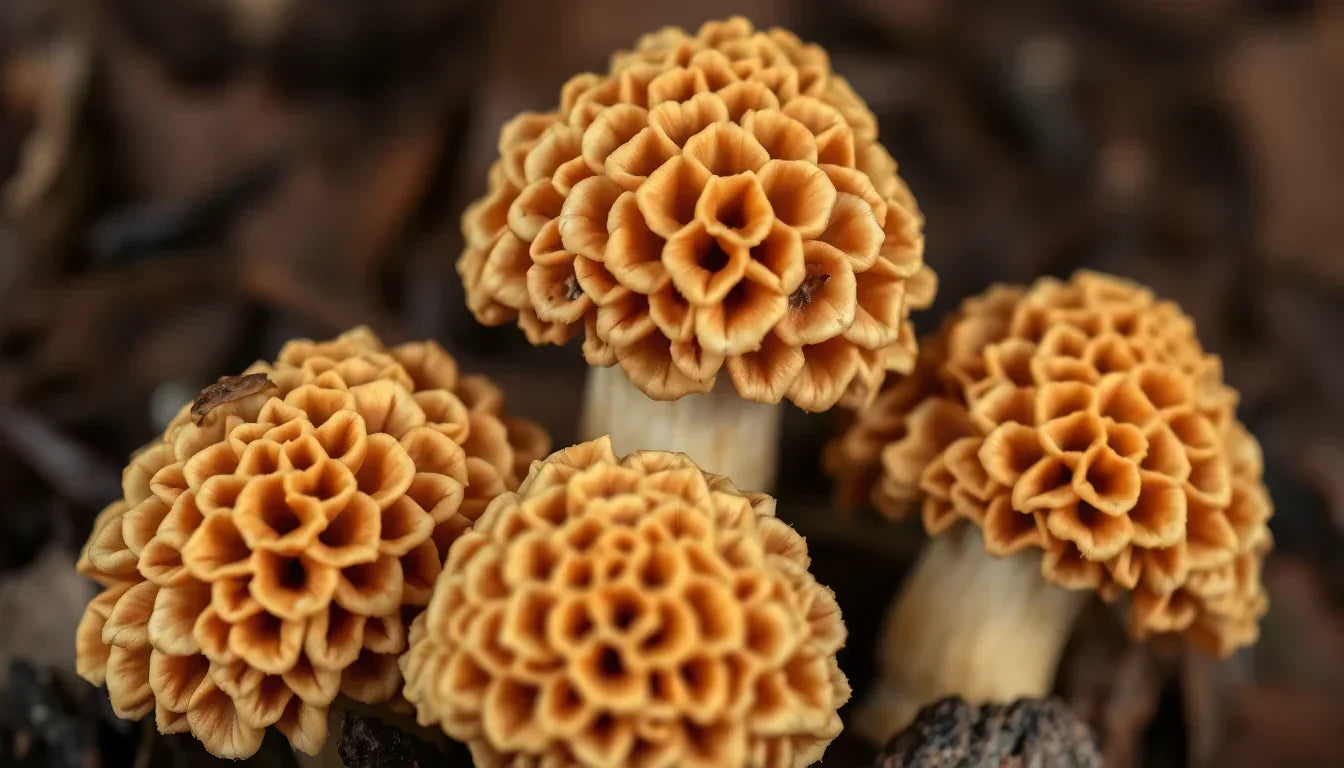
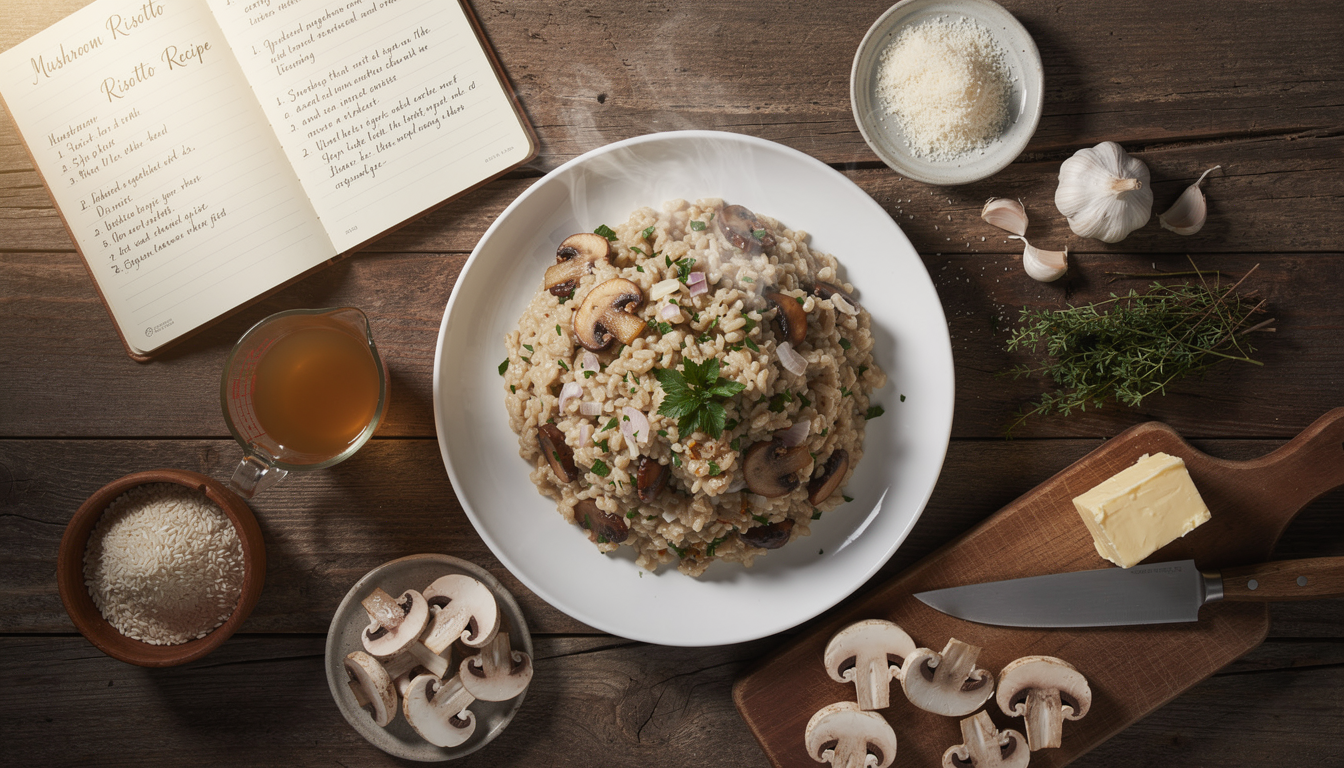
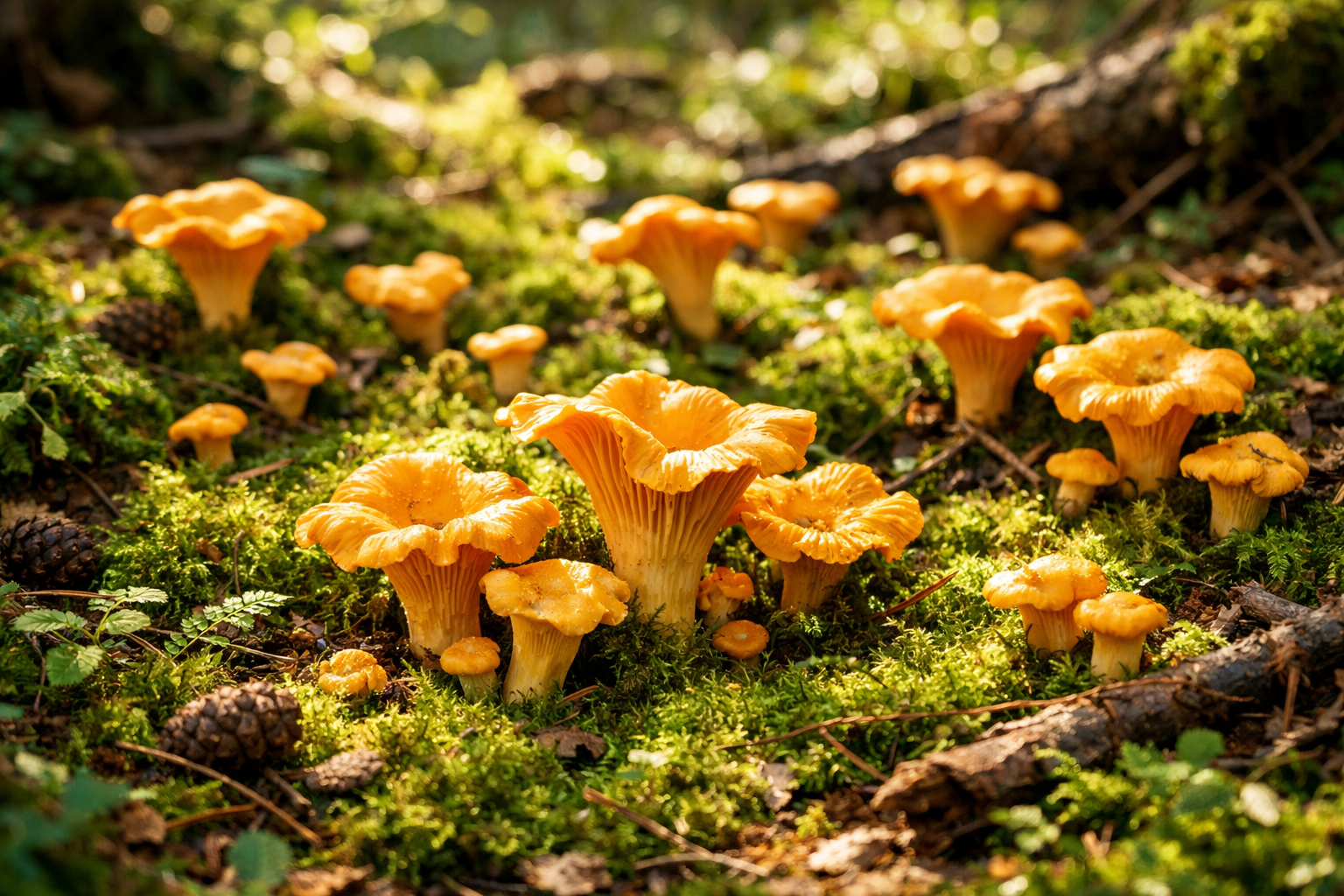
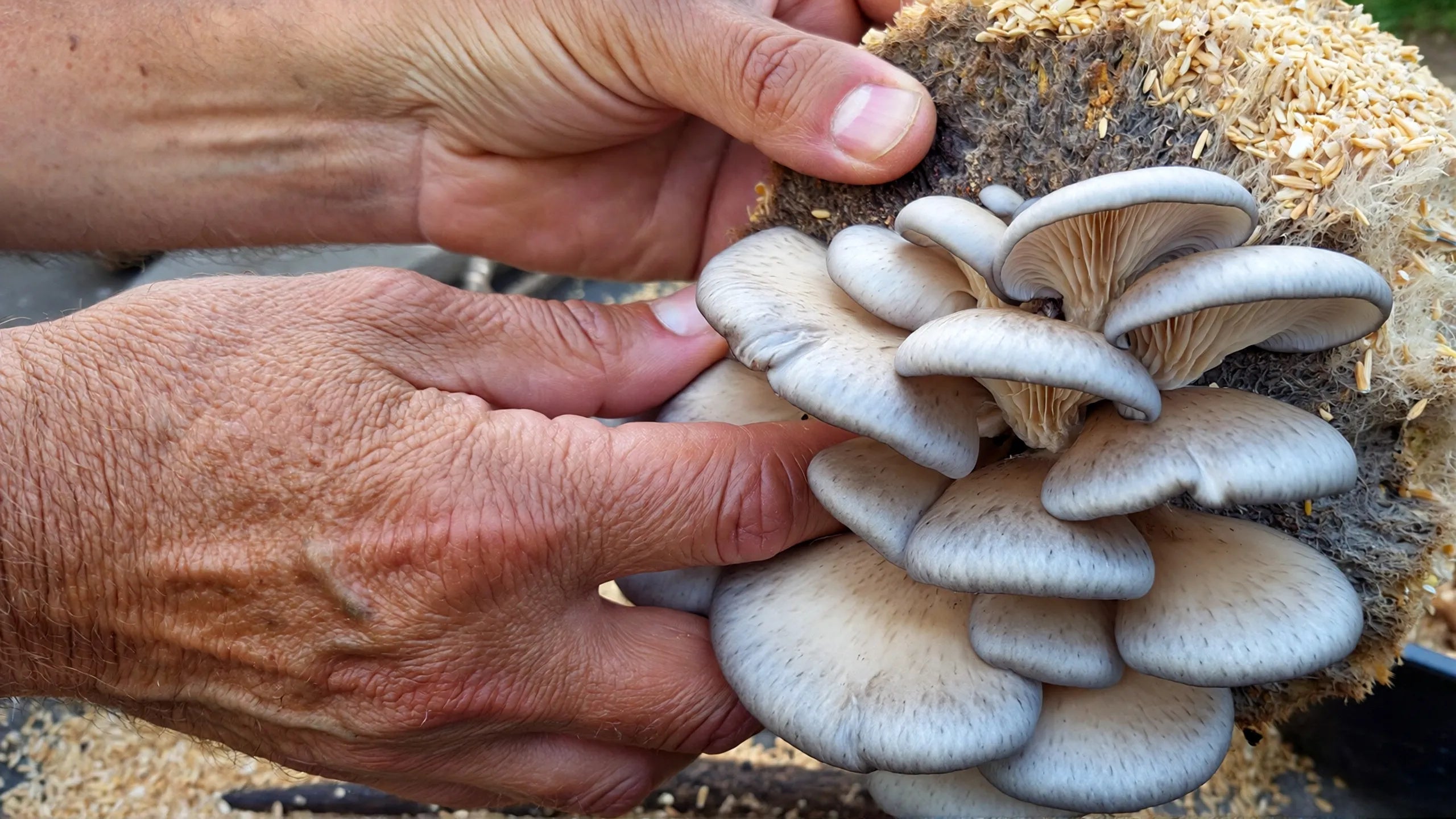
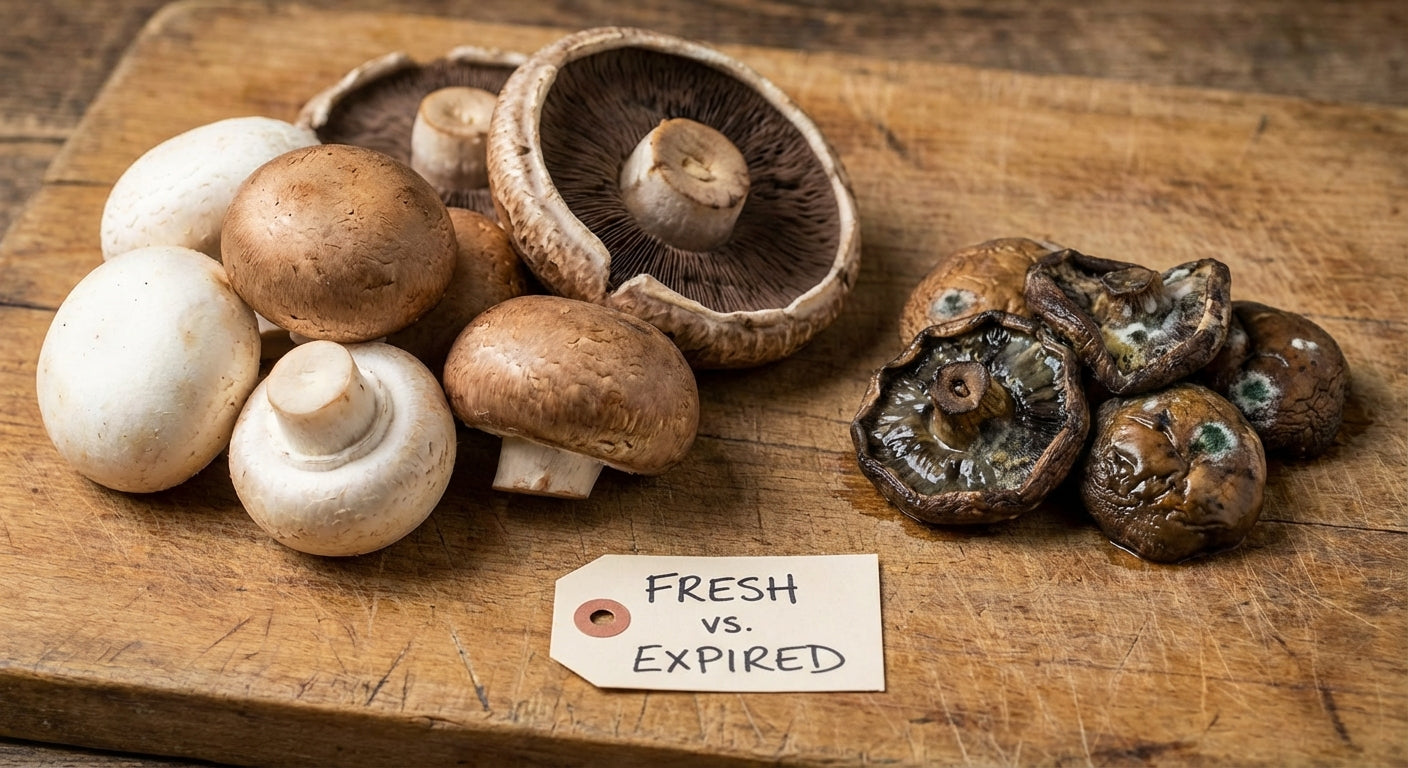
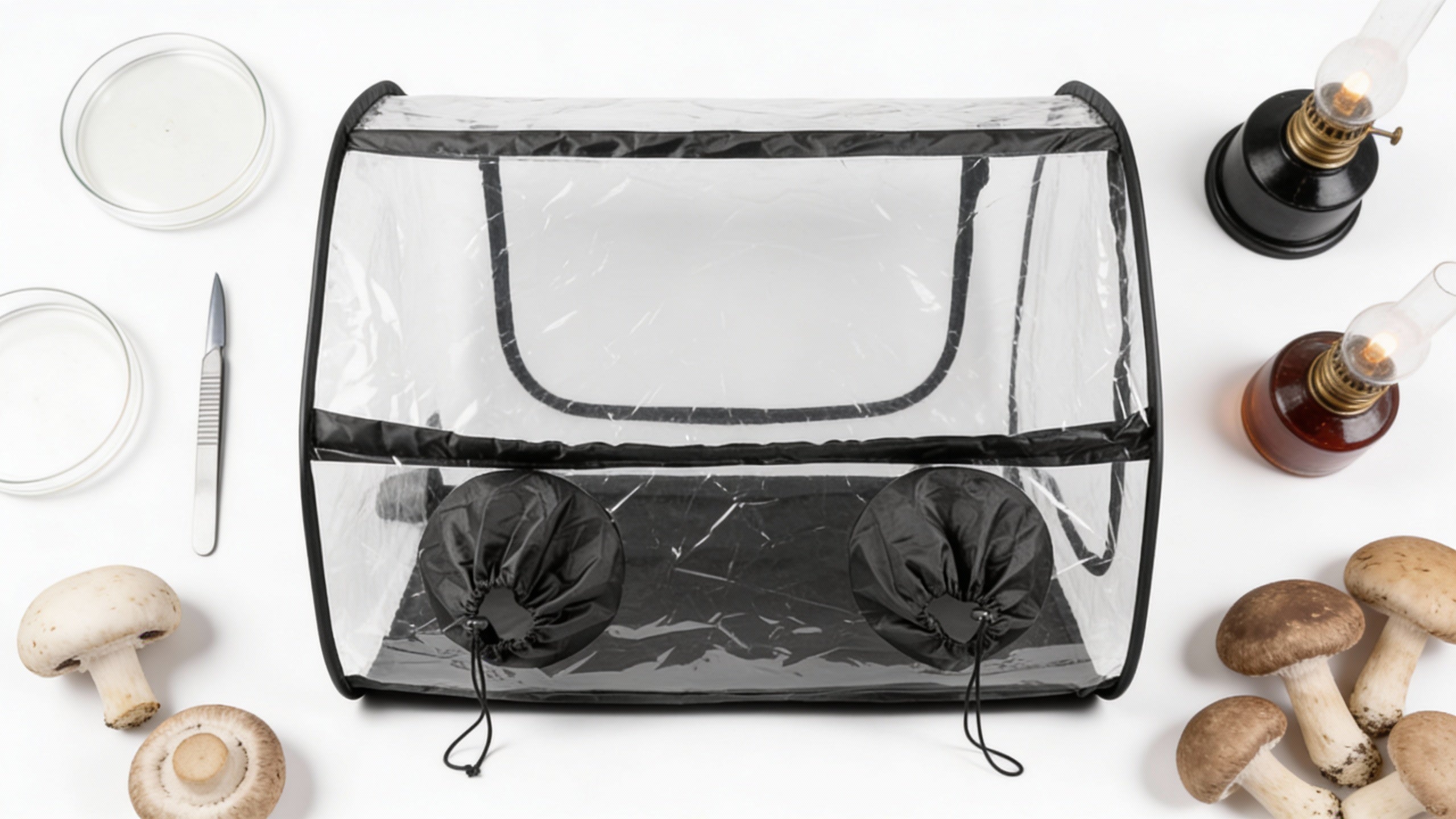

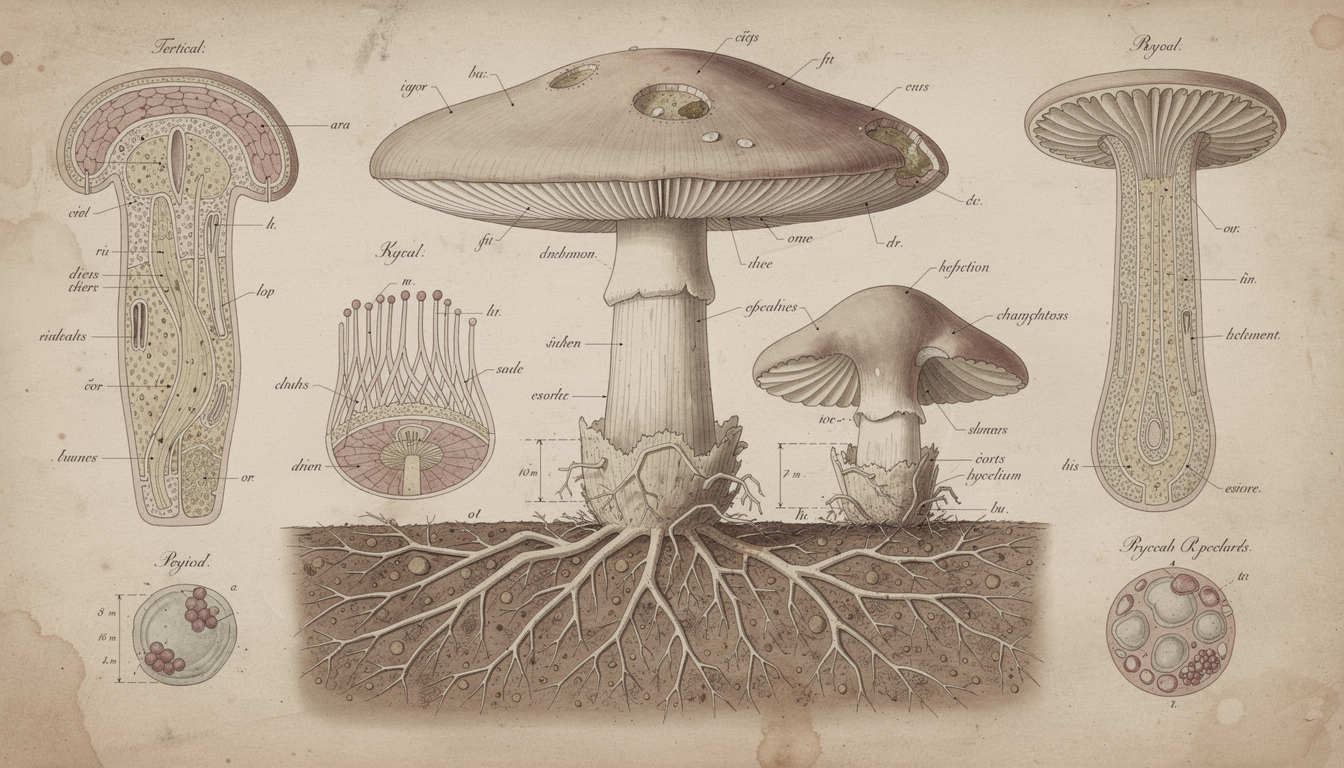
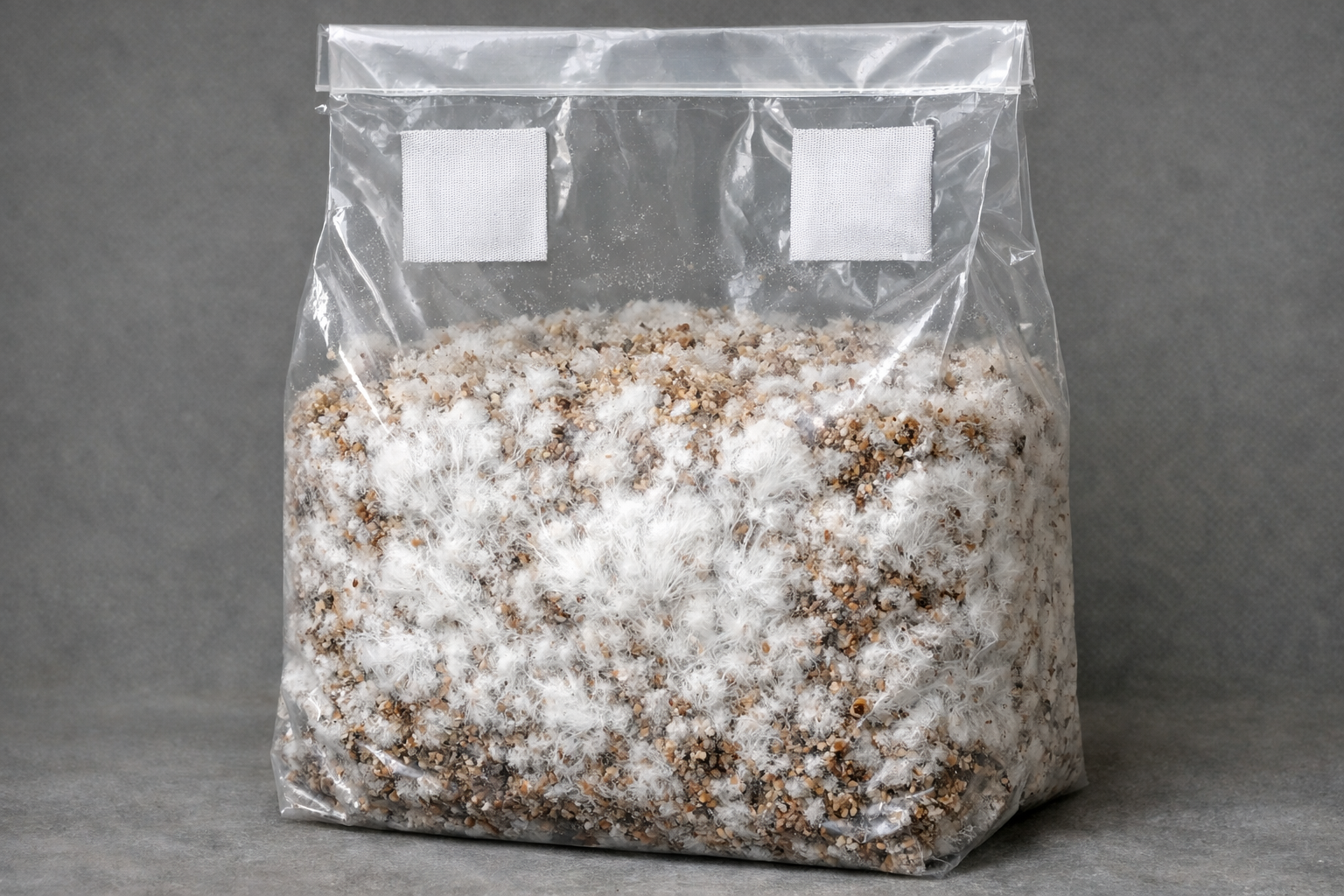


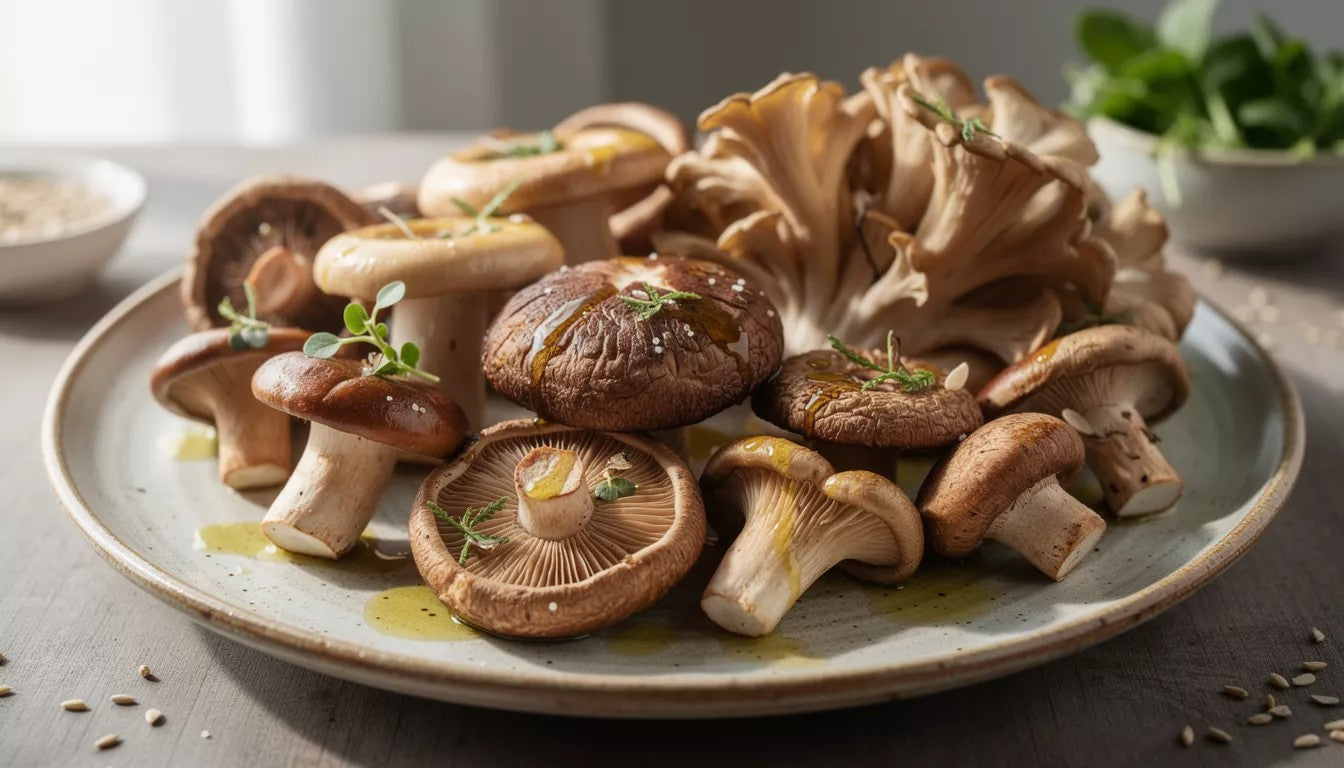

Share:
Morel Mushroom Nutrition Facts: Revealing the Health Benefits of Nature’s Gourmet Fungi
Blue Oyster Mushrooms: A True Gourmet Delight